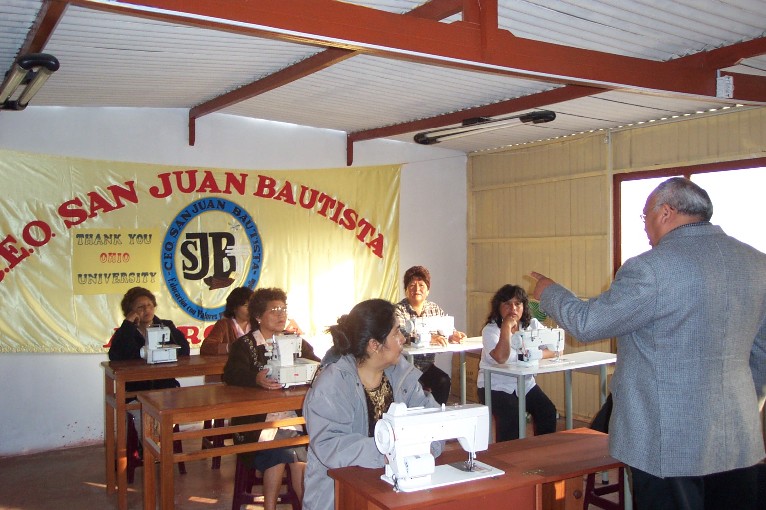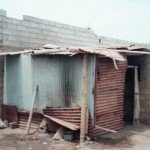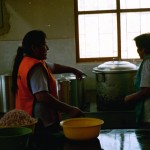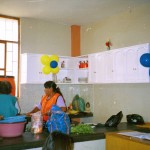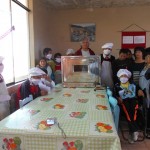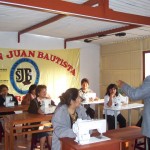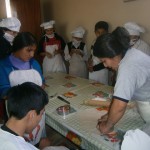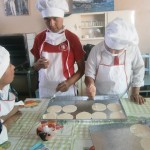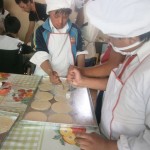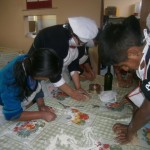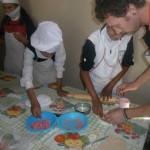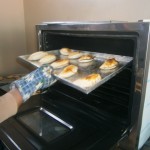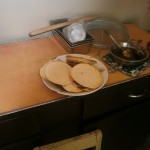This story was updated on Sept. 26, 2014.
Patricio Plazolles is the Program Officer for the Woltemade Center for Economics, Business and Entrepreneurship and spends his summers building businesses and other opportunities for disadvantaged communities in Peru.
The effort began in 2001 as part of Ohio Wesleyan’s Spring Break Mission Week program where a group of students travel abroad to do charity work in other countries every March. Plazolles would travel to areas surrounding Lima, Peru, with 10 students to learn about the culture and do work for the betterment of those communities.
“The students used their backgrounds to contribute to the communities,” Plazolles said. “We had an arts major with us who taught welding to some students there, others taught English in the evenings. Then the students themselves would learn to milk cows and just get to know the people there…The point was to understand the conditions of those people.”
With more funding, Plazolles and the Peru program built classrooms in a school outside of the second largest city in Peru, including a new kitchen with industrial appliances where cooking staff had previously used a tin shack with a hot plate to prepare meals. As if the transformation weren’t enough, Plazolles explained how jump starts like these in the community could lead to fundamental changes in people’s lives.
“They started a soup kitchen in the new facility and charged very little, as much as the people there could afford,” Plazolles said. “Then they bought a DVD player…then a TV…and now they have movie nights.”
For Plazolles, the point of starting these businesses is not turning a profit; money and materials he donates to schools and startups are just that, not loans. Enabling people to work for themselves without having to worry about paying anyone back for giving them that second chance is at the center of his philosophy.
“Why would I take back something I gave you after you’ve built this for yourself?” Plazolles said. “It is sustainable, they will alway have this, and they don’t have to pay any interest or things like that.”
The last Peru trip took place in 2004 before the program was cancelled, but Plazolles has continued to travel to Peru and do work every summer. Most recently, Plazolles started a bakery in a school for developmentally disabled people that allowed the school to provide occupational opportunities for the students. With more funding, Plazolles would like to open the program to students who are too old for the school, rather than them having to return to homes with few opportunities.
In 2011, Plazolles was awarded the Peruvian Pride Award for Peruvians abroad who have made great contributions in the U.S. and Peru. The money Plazolles collects for the equipment and other charitable efforts comes from individual donations. OWU alumni and students have all contributed and Plazolles keeps notes of the students and where they are from to show people in Peru where their donations come from.
Donations made are used to buy equipment before turning it over to communities in Peru, they do the work from there themselves. Donations can be left in the urn in Plazolles’ office that he calls the “Tree of Wishes” and any amount — pennies or dollars — is welcome.
When asked about the Peru trip making a return to Mission Week, Associate Chaplain Chad Johns, who is in charge of the Mission Week program, responded in a statement echoed by Chaplain Jon Powers.
“My assumption is that the Peru team hit a lull in interest and then faded from student consciousness. As far as I know, there have been no recent attempts to revive the team.” Johns said. “However, since I’ve been here, we have had teams to El Salvador, Nicaragua, Haiti and Belize.”
With enough interest and a formal proposal, the trip could make a return, and OWU students could once again accompany Plazolles on one of these trips to make a difference in the Peruvian community.
